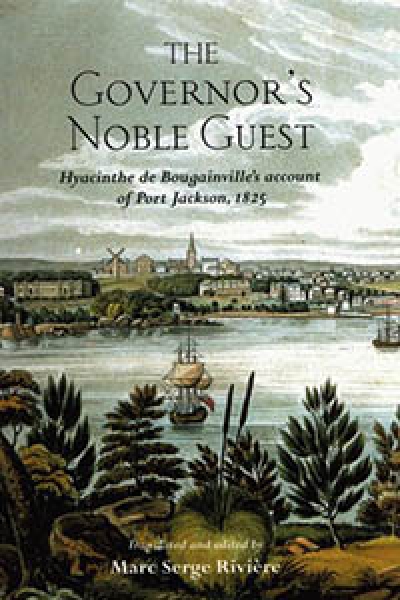Colonialism
Film | Theatre | Art | Opera | Music | Television | Festivals
Welcome to ABR Arts, home to some of Australia's best arts journalism. We review film, theatre, opera, music, television, art exhibitions – and more. To read ABR Arts articles in full, subscribe to ABR or take out an ABR Arts subscription. Both packages give full access to our arts reviews the moment they are published online and to our extensive arts archive.
Meanwhile, the ABR Arts e-newsletter, published every second Tuesday, will keep you up-to-date as to our recent arts reviews.
Recent reviews
England Through Colonial Eyes in Twentieth Century Fiction by Ann Blake, Leela Gandhi and Sue Thomas
The Governor’s Noble Guest: Hyacinthe de Bougainville’s account of Port Jackson, 1825 edited by Marc Serge Rivière
The Chief Justice of New Zealand opened his recent judgment on the attempts to suppress the book Spycatcher by Peter Wright with the comment that it was ‘probably the most litigated book in all of history’. That may be correct; although I suspect that the Bible may yet have a slight edge.
The Bible was probably the first book carried from the ships of the First Fleet when they anchored in Sydney Cove in January 1788. From reading the catalogue which accompanies this exhibition, I get the impression that the Rev. Richard Johnson – sent to this country by an organisation with the engaging name of the Eclectic Society – was rather like those annoying people who nowadays clamber aboard a jumbo jet struggling remorselessly on with the entirety of their worldly possessions. Johnson was just such a man. He carried with him no less than 100 Bibles, 350 New Testaments, 500 Psalters, 100 Prayer Books and 200 Catechisms – all made available to him by the Society for Promoting Christian Knowledge. Amongst his most precious possessions were twelve copies of Bishop Thomas Wilson’s An Essay towards an Instruction for the Indians. Sadly, guns and hangings all too soon quickly replaced words and books in the relationship between the newcomers and the indigenous inhabitants of the Great South Land.
... (read more)



